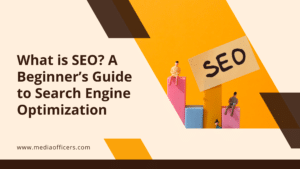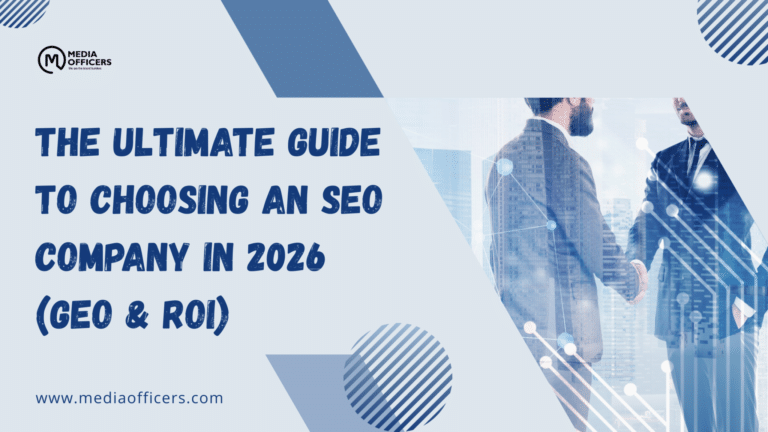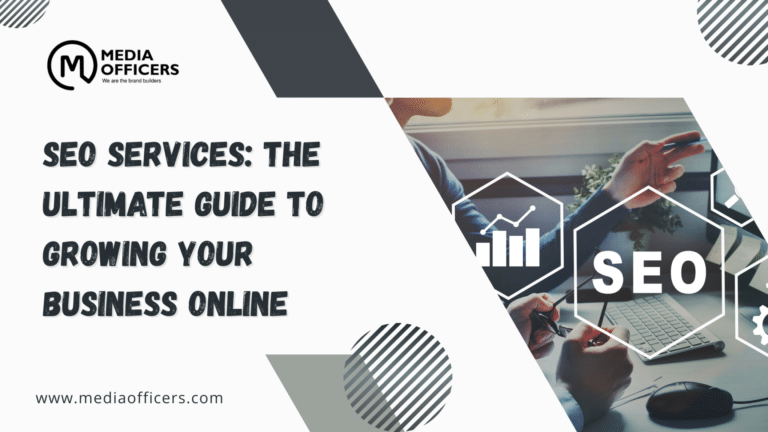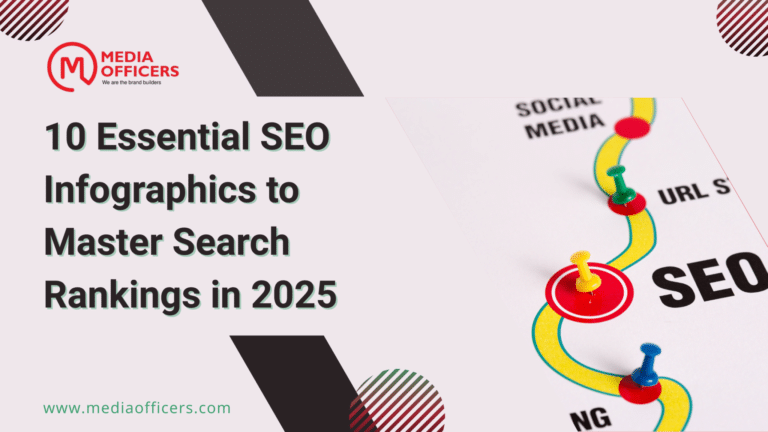If you’ve spent any time researching how to improve your website’s performance, you’ve likely come across the term SEO. But what exactly is Search Engine Optimization, and why is it such a buzzword in the digital world? A Complete guide on What is SEO?
SEO, or Search Engine Optimization, is the art and science of improving your website’s visibility on search engine results pages (SERPs), like Google. Put simply, it helps your site attract more visitors without relying on paid ads. Whether you’re a small business owner, content creator, or beginner marketer, learning about SEO can be a game-changer for your online presence.
This blog explores the fundamentals of SEO, why it’s so essential, and how you can start using it to build a successful website. By the end, you’ll know not just what SEO stands for but also how to take the first steps toward increasing your site’s visibility. Let’s get started!
What is SEO?
SEO stands for Search Engine Optimization. It refers to techniques used to increase a website’s visibility on search engine results pages. When users search for a term related to your business or content, SEO helps ensure that your website appears higher in the rankings. The higher you rank, the more likely users will click through to your site.
But SEO is more than just appearing on the first page of Google—it’s about driving organic traffic to your website. Organic traffic refers to visitors who find your site naturally, without clicking on paid ads. By focusing on SEO, you’re building a steady stream of traffic that can lead to long-term growth for your brand.
Why is Search Engine Traffic so Valuable?
Statistics show that 53% of all website traffic comes from organic search. When you optimize your site, you’re tapping into an audience that’s actively looking for what you have to offer—whether that’s products, services, or content.
Why is SEO Important?
SEO offers massive benefits for websites of all sizes and industries. Here’s why it’s essential for your digital success:
1. Drives Free and Consistent Traffic
Unlike paid ads, which stop driving traffic as soon as your budget runs out, SEO keeps delivering results over time. Once you start ranking well, your website can attract visitors consistently without paying for every click.
2. Builds Credibility and Trust
Websites that rank highly on Google are often seen as more credible and trustworthy by users. By optimizing your site, you signal to both search engines and visitors that your content is valuable and relevant.
3. Enhances User Experience (UX)
Google prioritizes websites that offer an excellent user experience. This means that SEO improvements like site speed, mobile optimization, and quality content don’t just help with rankings—they also make your site better for users.
4. Supports Long-Term Growth
When your site is optimized for search engines, you’re investing in your business’s future. SEO creates a foundation for ongoing growth, bringing in new audiences and opportunities year after year.
How SEO Works: Key Ranking Factors

Understanding how SEO works starts with getting to know the basics of search engine algorithms and ranking signals. While the exact formulas are secret, Google uses over 200 factors to determine how websites rank.
One of the most important frameworks is called E-E-A-T, which stands for:
- Experience – Does your content show firsthand or hands-on expertise?
- Expertise – Are you knowledgeable in the subject matter?
- Authoritativeness – Do others recognize you as a go-to source?
- Trustworthiness – Is your content accurate, credible, and secure?
These factors influence how search engines and users view your website, so it pays to build content that satisfies these criteria.
Types of SEO
Effective SEO is a combination of multiple strategies working together cohesively. Here’s a breakdown of the three core types of SEO:
a) On-Page SEO
On-page SEO involves optimizing individual pages on a website to rank higher. Key components include:
- Keyword Optimization: Researching and using keywords that match user searches.
- High-Quality Content: Creating valuable, well-written, and engaging posts or articles.
- Title Tags & Meta Descriptions: Writing compelling metadata that attracts clicks.
- Internal Linking: Connecting your pages for better navigation and SEO performance.
b) Off-Page SEO
Off-page SEO focuses on activities outside of your website, such as:
- Backlink Building: Gaining links from reputable, high-quality websites.
- Social Media Mentions: Driving conversations and engagement on platforms like Instagram or LinkedIn.
- Guest Blogging: Writing posts for other sites to build your reputation and audience.
c) Technical SEO
Technical SEO ensures search engines can crawl and index your website efficiently:
- Website Speed: A fast-loading site keeps users engaged and reduces bounce rates.
- Mobile-Friendliness: Google prioritizes sites optimized for phones and tablets.
- Secure HTTPS Connections: Using SSL certificates to keep your site safe.
- Structured Data: Using Schema Markup to provide better context to search engines.
Best SEO Practices for Higher Rankings
Here are some practical tips to take your SEO to the next level:
- Use SEO Tools: Platforms like Google Search Console, SEMrush, and Ahrefs can help track performance, spot issues, and find opportunities.
- Encourage Engagement: Create content that encourages users to stay longer on your site, reducing bounce rates.
- Leverage Content Marketing: Regularly update your blog with fresh, keyword-optimized articles.
- Optimize for Voice Search: With the rise of smart speakers, use conversational keywords to stay ahead.
- Stay Updated: SEO evolves constantly, so staying informed about trends will keep you competitive.
Common SEO Mistakes to Avoid
Avoiding these common pitfalls will save you time and frustration:
- Keyword Stuffing: Overloading your content with keywords can hurt your rankings.
- Ignoring Mobile Users: With mobile-first indexing, a non-optimized site can lose rankings fast.
- Buying Backlinks: Low-quality or black-hat tactics damage credibility and earn penalties.
- Not Tracking Results: Use analytics to gauge what’s working and refine your strategy.
Take Action and Start Optimizing Your Site!
Search Engine Optimization might sound overwhelming at first, but it’s an essential tool for building a robust online presence. By implementing SEO strategies, you can increase your site traffic, engage with your audience, and enhance your brand’s credibility.
Whether you’re a marketer, small business owner, or content creator, SEO is your ticket to sustainable growth. Start small, track your progress, and continually improve.
Need help getting started? Contact us today for personalized SEO services or advice!




